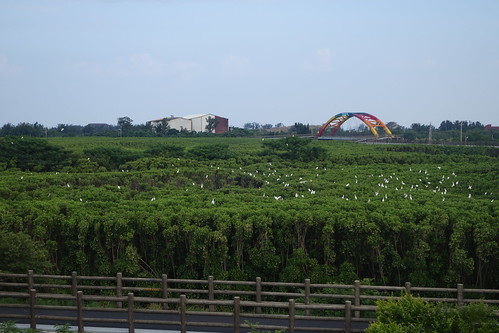Taiwan: A History of Agonies
Ong Iok-tek
Avanguard, Taipei
367 pages
450 NT
Many years ago I was given a copy of this book in Chinese. Like thousands of others who love Taiwan and have come to support independence and democracy on the island, Taiwan: A History of Agonies was an inspirational text for me. Everyone from exiles in the US in the 1970s to Sunflower leaders has read this book, and its influence on the movement in decades following its publication in Japanese and later in Chinese (in 1977) should not be underestimated. It is one of the formative texts of the movement.
Jerome Keating wrote of it:
To place Ong in context, he was born in Taiwan in 1924 during the Japanese colonial era, and was a contemporary of Su Beng (史明, b.1918), a historian and Taiwan independence advocate, former president Lee Teng-hui (李登輝, b. 1923) and democracy pioneer Peng Ming-min (彭明敏, b. 1923), all Taiwanese who studied in Japan.Like Su Beng, whose Taiwan's 400 Year History awaits an English translator (a very short version is available, published back in 1986), Ong originally published in Japanese, and this version is apparently translated from the Japanese.
Illuminated throughout by Ong's perception of Taiwan as a colonial subject, the book is filled with juicy details...
From 1882 to 1891 northern Taiwan had to depend on the mainland for supply of thousands of dans of rice due to a rapid increase of population in the north and consecutive years of poor harvests. In the same period, however, southern Taiwan continued to export rice to the mainland-- an awkward phenomenon basically caused by overall political inefficiency and poor transportation system that had hindered Taiwan's sound growth into a single economic unit. The immediate reason, however, was that more advanced foreign steamships (mostly of the British) were readily available to bring in rice from outside. Shipping rice from down south with local junks was much too inefficient (p129-30).and the mastery of first-hand experience and discussion:
The New Citizens Society published a monthly The Taiwan Youth (publisher: Ts'ai P'ei-huo) after a revolutionary magazine in China The New Youth. Political movement will start with enlightening and propaganda. This is another formula. The magazine title "The Taiwan Youth" was later changed to "Taiwan" and again to "The Taiwan People's Weekly". As publication was made possible at the turn of era to Showa, in Taiwan, it grew into a daily called "The Taiwan New People Daily" (publisher: Lin Hsien-t'ang) in January 1929. The paper was to become the most powerful weapon for later political movements in Taiwan (p182-3)Ong's take on the land reform, so famous among historians...
Whatever the contradictions, the Chinese have one common interest -- that is, to live off the Taiwanese. No sooner had the Kuomintang landed in Taiwan than they embarked on a series of land reforms. In fact, it was indispensable for the Kuomintang to be the one and only mega landowner in Taiwan just to secure an abundant supply of inexpensive food. Such land reforms were made a sample of the Kuomintang's benevolent policy and highly praised as such by ill-informed foreigners.The remainder of the passage goes on to describe how the farmers were immiserated by the land reform and agricultural fell into a permanent state of impoverishment and decline despite its economic importance.
...
A year after the 2.28 Rebellion, the rice famine still lingering, Wei Dao-min implemented an urgent policy to adopt surplus rice legislation. All large and middle-sized landowners with over ten hectares of land (35.8% of all arable land, 2.7% of all landowners, or over 9,000 farming households) were ordered to deliver surplus at low prices. The landowners were furious but had to comply to avoid imprisonment.(p233-4)
The book ends with the history being brought up to the present by Ong's daughter. This is a masterful work whose final chapter calling for Taiwan independence is heartbreakingly powerful. It should be in the library of everyone interested in the history of the island and its democracy.
REF: Jerome Keating's Review from the Taipei Times
_______________________
[Taiwan] Don't miss the comments below! And check out my blog and its sidebars for events, links to previous posts and picture posts, and scores of links to other Taiwan blogs and forums!

No comments:
Post a Comment